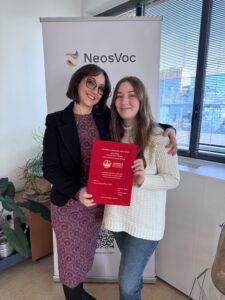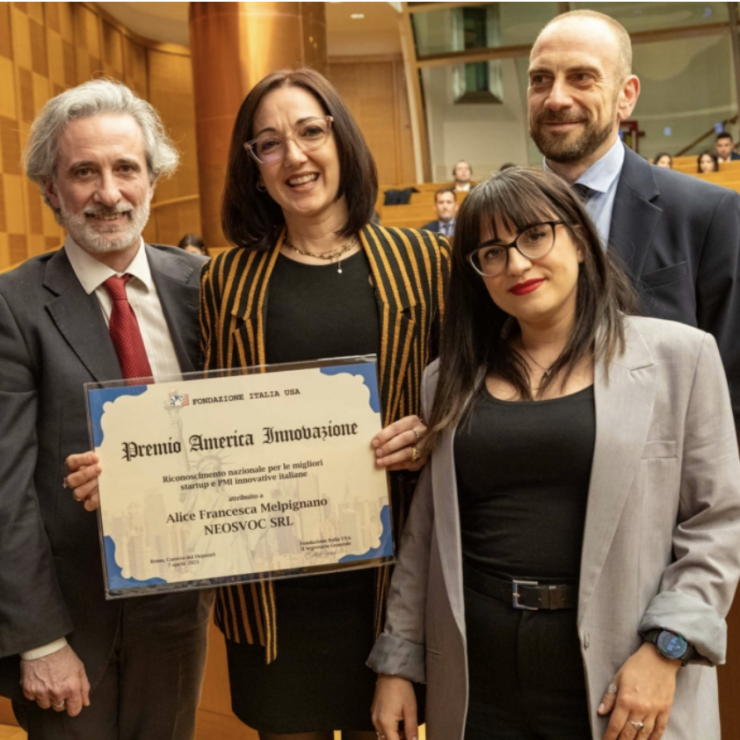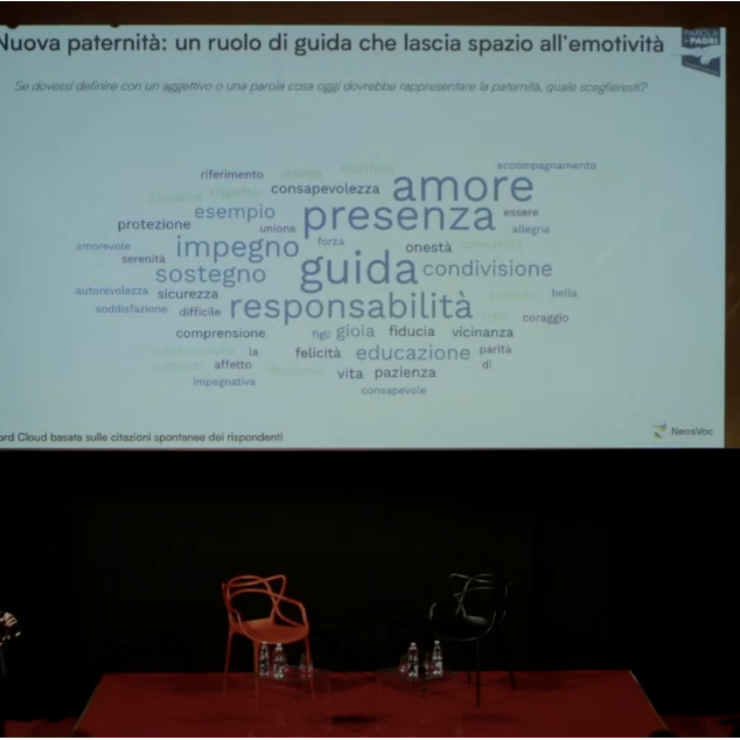Martina is 22 years old, with a beautiful smile and few, very few words. We met her when she came to NeosVoc for her internship during her second year of Communication studies at Cattolica University. And we liked her a lot.
It must have been mutual because when it came to choosing the topic for her thesis, Martina asked us to do something a little different: a thesis on CEO branding, an experimental one, focusing on Alice Melpignano, the CEO of NeosVoc.
A whole new world opened up. Alice is the CEO of a startup operating in the tech industry. So, a female CEO of a tech startup is quite uncommon.
Some Data
Twelve years after the Golfo Mosca law, which introduced gender quotas in the boards of directors and supervisory boards of listed companies in Italy, the situation remains critical. Despite an increase in the number of women in decision-making and strategic roles, both in the public and private sectors, it’s more exceptions than a real achievement of gender parity.
The study by the Corporate Governance Lab of Bocconi University in Milan, which examines the presence of women in the boards of directors of the fifty largest Italian companies listed on the stock exchange, reveals that while the percentage of women on boards of directors exceeds 41%, only 13.7% of them hold executive roles. Moreover, it’s rare to find women at the helm of major Italian companies, as none of them is currently led by a female CEO.
Globally, the situation isn’t better: only 2% of women hold the position of CEO, and only 4% are presidents in significant companies.
The data related to women in STEM (Science, Technology, Engineering, and Mathematics) fields isn’t encouraging either. The UNESCO Institute of Statistics (UIS) reports that only 30% of researchers worldwide are women, and less than a third of female students choose to study STEM subjects at university.
In the European Union, out of 21 STEM graduates per 1,000 young people aged between 20 and 29, only 14.9 are women, while men are nearly double, at 27.9. In Italy, the situation is even more critical, with an average of 16.4 graduates in scientific disciplines per thousand young residents, of which 19.4% are men and 13.3% are women.
According to the 2021 AlmaLaurea report, the gender disparity also affects those who graduate in STEM fields. Despite women achieving higher average grades and being more consistent in their studies, they are severely disadvantaged in the job market. Five years after obtaining a STEM degree, the employment rate for men is 93%, while for women, it’s 7%. Additionally, men report earning an average of around €1,760 per month, while women earn about €1,472.
However, there is a glimmer of hope in the sector of innovative female-led startups in Italy. By the end of September 2022, there were 2,000 such startups registered, an increase from 2019, representing 22.18% of Italian entrepreneurship.
These startups mostly focus on education, networking, and empowerment programs.
A Perspective in the Social CEO Universe
As we have seen, despite progress in promoting gender equality and female participation in decision-making roles, significant challenges remain in Italy, especially in key sectors such as executive positions and STEM degrees. Alice Melpignano is involved in each of the identified themes, as CEO of NeosVoc and also as a board member of Assintel (the national association of ICT companies of which NeosVoc is a part).
And the idea is that her journey isn’t just about branding but strongly oriented towards a purpose: the promotion of female leadership.
Among the CEOs analyzed by Martina in terms of communication, four main profiles emerge:
- THOUGHT AMBASSADOR These are CEOs who present themselves as individuals, beyond the brand, through their opinions. Their opinions are always relevant to their industry or company but also extend to content beyond that, such as values, ideas, aspirations, and so on. Such an attitude naturally leads to engagement with the audience, creating the typical ambassadorial relationship.
- THOUGHT LEADER There are many courses on becoming a Thought Leader on social media, but the truth is that few actually achieve it. These are CEOs who, like celebrities, have achieved so much that their narrative goes beyond. In Italy, this is the case with figures like Passera, who has a voice in the Treccani Encyclopedia. This is also the realm of personalities like Elon Musk, Richard Branson, Bill Gates, and so on.
- BRAND LEADER These are CEOs who represent the brand and engage only in its service, without exposing themselves beyond that. This also means having their own voice but devoid of topics other than those proposed by the brand.
- BRAND AMBASSADOR Like brand ambassadors in the influencer world, they are points of reference but do not question themselves. They speak through the brand, using its words and emotions.





